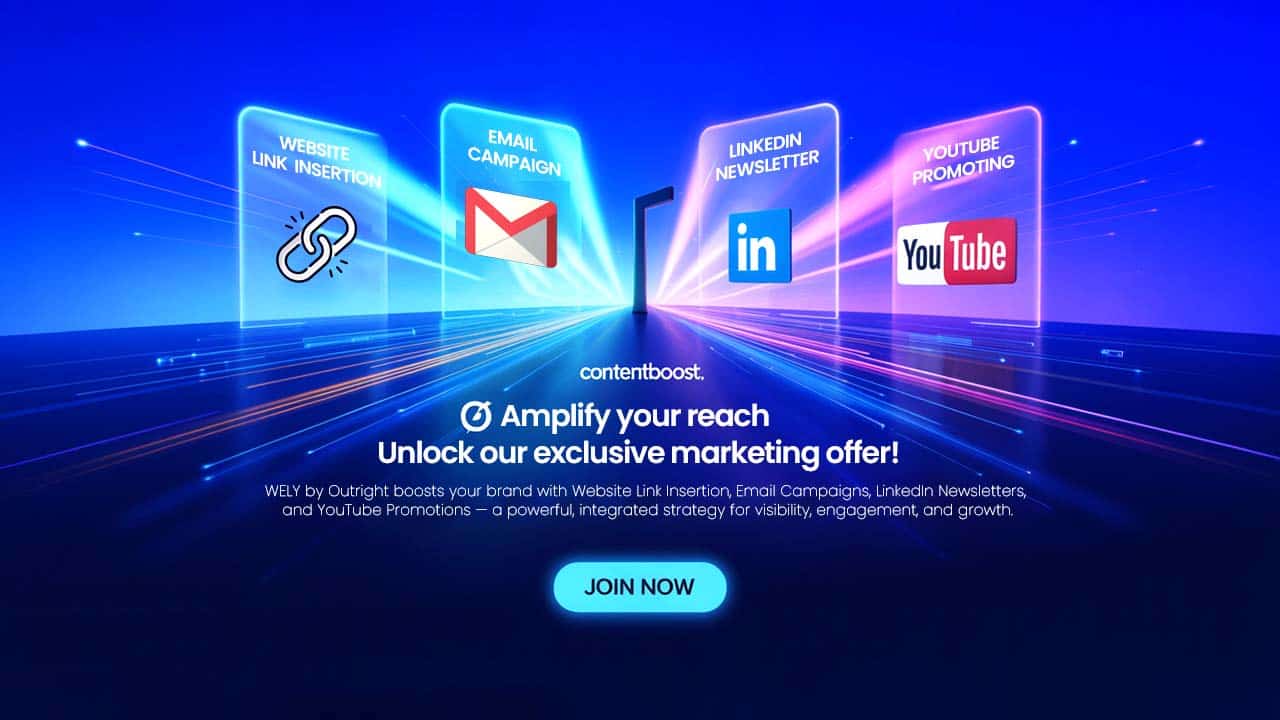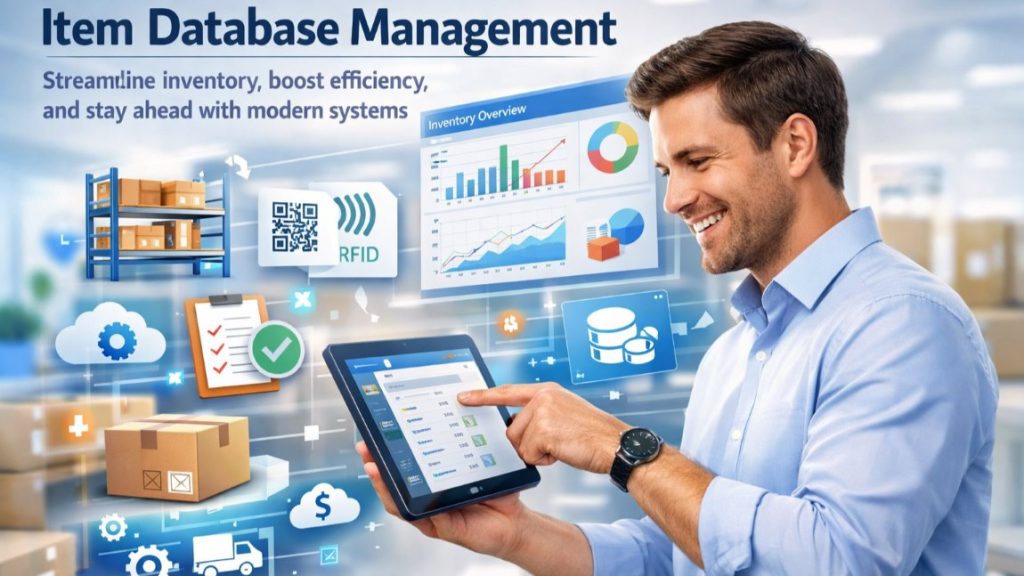In the ever-growing flood of digital communication, cutting through the noise has become a serious challenge—especially in email marketing B2B lead generation. Over 250 million emails are sent regularly worldwide,
In the ever-growing flood of digital communication, cutting through the noise has become a serious challenge—especially in email marketing B2B lead generation.
Over 250 million emails are sent regularly worldwide, but that’s not enough to just hit “send” and get high click through rate. Businesses are often looking for native ways to ensure the success of their email marketing campaigns. However, one of the intelligent, more strategic methods is to integrate your Customer Relationship Management (CRM) system.
Meanwhile, this integration guide businesses throughout their marketing process, ensuring the right message will be sent to the right person at the right time. This automation eliminates guesswork, helping improve efficiency, drive sustainable growth, and boost conversation rate. This article will explain how CRM and email marketing integration transform turning potential leads into devoted clients.
What is CRM and Email Marketing?

Before diving into how CRM and email marketing work together, first understanding what each technology is, what their unique characteristics are, and how it boosts B2b interaction can make all the difference.
CRM: Maintaining Healthy Customer Relationships
Essentially, CRM system is a comprehensive, centralized platform that stores, controls, and manages essential information about your prospects and customers. The details include client name, titles, preferences, organization size, previous interactions, and more. Organizing such data into a centralized place is crucial for businesses, especially B2B where customer relationships are complex and sustainable.
Email Marketing: Effective Strategy to Reach Targeted Clients Directly
Email marketing is one such effective technique utilized by B2B marketers to establish a robust customer relationship. The tool allows businesses and marketers to control their digital campaigns and facilitate direct, personalized interaction with clients. Irrespective of whether you are looking to share product updates, welcoming new clients, or running automated email campaigns. Email with the right data keeps your businesses aligned and competitive with top decision makers. But without correct data, these campaigns are not effective in streamlining inbox management, email campaigns, and customer engagement.
The Synergy of Both Powerful Tools
While these platforms play a critical role at their own pace, combining them can make data-intensive, content aware systems that automate and personalize communication at scale. This sophisticated integration can remove guesswork and lead to real-time, relevant interactions with clients to enhance loyalty and brand image. Hence, this integrated system is filled with various features and characteristics that streamline the process.
Unified Client Information
CRM system is a comprehensive platform to store all your customer information in a single cohesive place. The tool ensures relevant, personalized email campaigns by analyzing customer data like purchase history, industry size, past communications, and content management.
This allows you classify your email list based on:
- Behavior: Evaluate customer interest, behaviour based on activities, like downloading a whitepaper, interaction with past emails, visiting main pages, and more.
- Location: Personalize responses based on time zones and country-specific guidelines; label email list based on geographic locations.
- Customer Journey Stage: Designed messaging for prospects, potential clients, existing customers, or inactive accounts.
This segmentation ensures that your email is tailored to each customer's requirements, interests and stage in customer journey.
Automated Campaign Triggers
Integrated CRM data allows you to create an automated workflow that automatically sends emails at the right time. Instead of depending on an individual, one-size-fit platform, utilizing this combined CRM and Email marketing platform fosters your campaigns to react to every action.
Here are some common examples:
- Running a welcome email campaign that is sent to customers after they sign up for the first time.
- Executing a re-engagement campaign if the sent emails haven’t been open for 30 days.
- Run automatic follow up campaigns immediately after client attend webinar and completed product demo.
These advanced automations eliminate manual efforts without hindering accuracy, efficiency, and personalized communications.
Relationship building and Lead Evaluation
However, not every lead is interested in the brand and has a lower chance of getting converted after an initial email. This requires smart lead nurturing, lead evaluation, and a significant effort to attract leads towards your brand. CRM and email marketing integration can make this possible by utilizing behavioral triggers to deliver personalized content over time.
Implementing lead scoring allow you to monitor actions, like:
- Open rate for emails and click through rate for links
- Overall time spent on high-impacting landing pages.
- Repetitive engagement or downloads.
When a lead crosses specified minimum requirements, this combined system provides real-time notifications to the sales team. Additionally, the system will automatically trigger conversation driven emails, ultimately transforming curiosity into loyalty and commitment.
Key Advantages of Integrating CRM and Email Marketing
So why is integrating CRM with email marketing crucial?
This integration leads to a wide range of benefits, from improved personalization to data-driven enhancement. Here are some of the common benefits that prove the need and significance of this robust integration.
Improved Personalization
Research states that over 71% of consumers are expecting companies to provide relevant, personalized engagement.
In simple terms, personalization is essential to improve interaction, build trust, and drive conversations. Email marketing campaigns leverage CRM data for delivering personalized user experience, instead of entering first name—this allows you to tailor:
- Subject Lines: Crunchy, attention-grabbing lines that meet business goals and critical points.
- Content: Design email content highlighting the previous email behavior or account activity.
- Timely Delivery: The deliverability rate is optimized based on past interaction patterns.
Enhanced Customer Loyalty
Converting leads into customers is not enough; keeping them for future purchases is more crucial than ever. This CRM and email marketing integration helps you keep customer interested through:
- Executing loyalty campaigns that offer exciting rewards for frequent usage or repeat business.
- Sending emails for re-engagement sequences for reinstating inactive clients.
- Periodic anniversary or milestone email campaigns help establish a strong brand presence over time.
As CRM focuses on monitoring customer email history and status, your email marketing can stay focused on ever-changing needs. This ensures you remain relevant, authentic, and loyal after the sale.
Performance Optimization
In essence, combining CRM with email marketing platforms can significantly improve email performance in real-time. Instead of juggling between individual reports, this synergy gives you a comprehensive view of campaigns' efficiency.
This allows you to analyze:
- Prospective emails that gain user attention, lead sales, or request demos.
- Customer interest, behavior, and lifetime value depending on campaign sources.
- Allow performing A/B test, which tells you which subject lines and CTAs gained tractions.
These data insights help make better decisions, eliminating wasting time, money and resources on marketing efforts that never matter.
Best Practices to leverage the Integration
Implementing this robust integration seems complex and overwhelming at once. But by keeping it in practice, the process will become streamlined, manageable, and exceptionally worthwhile.
For example, you run a B2B software organization, and a person fills out a form to access your current industry report. The contact details of this potential lead will automatically store in CRM with a label, like “Top of funnel, report download.”
Based on this data, the integrated email marketing campaign executes a nurturing sequence:
- Day 1: A welcome email and attached download link
- Day 3: Follow-up email is sent to offer related blogposts
- Day 7: Invitation to a live demo
- Day 14: Email attached with case study which showcases ROI from similar companies.
- Day 21: A personalized email from the sales team aiming to ask whether they would like to connect.
This entire process depends upon CRM data like job title, business size, industry type, and past interaction records. When a lead clicks the demo invite and visits your website’s landing page, their lead score will significantly increase. This action can release a notification to your sales team who reaches out with tailored messaging designed through previous email interactions.
This is one crucial way of CRM and email integration functioning that guide customers throughout the sales funnel effortlessly, with no need for human intervention.
Conclusion
Combining your CRM and email marketing together is not just a tech trend; it’s an intelligent method to connect with your target audience.
In the digital world where inboxes are flooded with messages every day, delivering relevant, personalized email campaigns is crucial to ensure clients never miss business emails. When combining CRM with email marketing tools, it streamlines communication in a more personalized way, responding to clients at the right time, and guiding each lead throughout the entire buying process. This gives both customers and business clarity and consistency.
This holistic approach is not just about greater engagement; it’s about maintaining a strong relationship and driving great ROI. For businesses that focus on B2B lead generation, this integration provides a clear understanding of more insightful and measurable growth.
Related Posts:
E-Business: Transforming Commerce in the Digital Age
The Most Significant Types of Cyber Risks Businesses Should Be Worried About
Respond to this article with emojis






